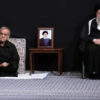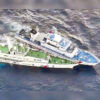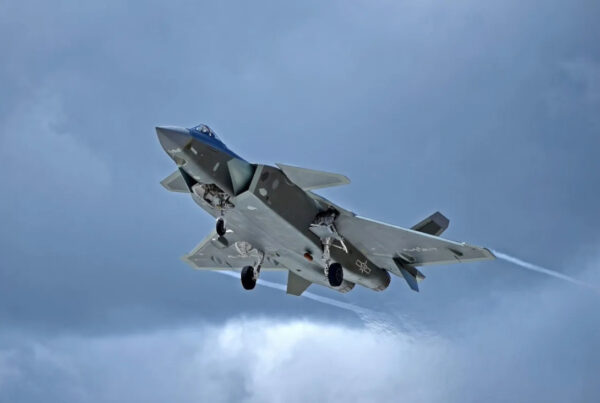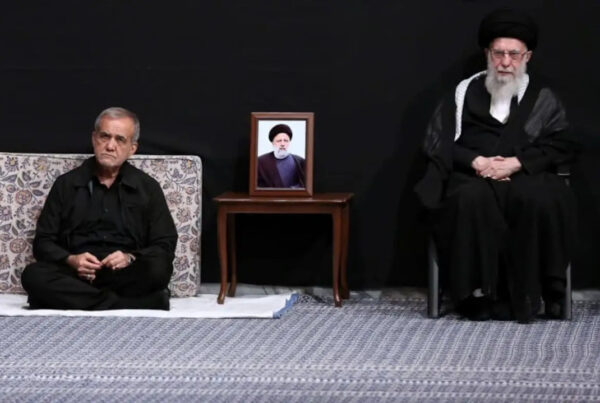Watching the Anarchists hurl themselves across the police barrier at the 1988 G-7 Summit in Toronto was an education in itself. While relatively few members of the pre-anti-globalization movement at the “People’s Summit” managed to wrestle through the cordon of bored reporters to actually fling themselves over the barrier, those that did all behaved relatively alike: As soon as a police officer laid a hand on him (or her), the member of the Agitprop Rent-a-mob would immediately scream in pain for the benefit of the cameras, acting as if the mere touch of a cop was tantamount to excruciating torture.
The same behavior can be observed whenever others of that ilk confront a line of police. Some of the real enthusiasts have even been observed to make a quick slash with a razor blade across their foreheads before lunging onwards. This is relatively painless and heals quickly, but it does quickly produce an impressively bloody face – perfect for providing “evidence” of police brutality on the evening news to an unsuspecting neutral audience.
Likewise, cops on riot details are now normally instructed not to raise their batons for an overhead strike – if they do, one of these Agitprop types will usually immediately kneel in front of them with hands raised in supplication, and another will snap the picture.
In the theories of propaganda, it is normally considered essential to hang a cloak of distortions on a coat peg of truth. Then there is the technique of the Big Lie used so often by Goebbels and Stalin – telling a fabrication so outrageous that no reasonable person will believe it, but resting sure in the knowledge there are plenty of unreasonable people who will gladly embrace the Big Lie as a truth, and plenty of neutral fools who might believe what they are told – especially if provided with photographic ‘evidence’. Moreover, a lie can appear to become a truth to many people if repeated often and loudly enough without being challenged.
Similar techniques are used in psychological warfare, particularly by insurgents who seek to undermine that trinity of beliefs which must be sustained by those who seek to counter them. This trinity of beliefs can be simply explained: The messages it contains are that ‘We are the good guys’, ‘the enemy are the bad guys’, and ‘we are going to win’. Every society or group engaged in a conflict needs to sustain its own trinity and undermine those of its opponents.
The Nihilists who sought to portray Canada’s police officers as thugs and goons were engaged in their own form of psychological warfare – ‘See how brutish the police are, hitting on poor innocents like us – obviously, the society that employs them has a lot wrong with it!’ If one makes such accusations often enough, eventually other people might come to believe it.
The Jihadist movement with which the civilized world must now contend is no stranger to psychological warfare. First, the psychological techniques used by Hitler, Stalin, and other despots were simple enough that almost anyone can ape them if they wish. Secondly, the ‘Left’ – by which one would mean that long progression of sundry radical socialists, Marxists of various stripes, etc. – has given the world a century-long primer in methods of dissent. In fact, these methods are so good, that they have survived the collapse of Marxism to live on as a self-sustaining process of pointless protest. Finally, while the Jihadist struggle is a rejection of the full spectrum of modern/Western civilization, its members have proven more than ready to adopt some of its products when it suits them – modern small arms and explosives, biochemical weaponry, the internet, credit card fraud, and so on…
Since 2003, al Qaeda has reacted to the suppression of its leadership by relinquishing its central role in the Jihadist war. The main focus of their war has been brought to Iraq, thus putting Abu Musab al Zaraqawi, a former lieutenant of Bin Laden, in charge of the key task of spoiling the creation of a functioning civil society in Post-Saddam Iraq and with attacking the Westerners there. The liberation of Afghanistan deprived Al Qaeda of its most useful base area, but the toppling of Saddam Hussein has also apparently changed the main focus of the Jihadist movement as their operational tempo in Europe and Eastern Asia has fallen off markedly since March 2003 – the Madrid bombing notwithstanding.
Besides setting aside the centralized decision making that used to mark Al Qaeda’s activities, the group has also sought to create a whole new layer of activity through 2004 by encouraging Jihadist-inclined individuals to act autonomously. Among other things, they have released an internet manual in several stages – a Jihadist equivalent to The Anarchist’s Cookbook or the old Earthfirst! Field Guide to Monkeywrenching. Considering the vast amounts of mischief these two texts have made possible, the poison fruits of the al Qaeda manual will be making themselves felt for some time to come.
The Al Qaeda manual (ambiguously carried as “Volume 1 of an Encyclopedia from The Abu Zubeida Centre for the Promotion of Jihad, Research Department”) contains much of the quasi-theological claptrap one might expect from them, but it also contains even more advanced recipes for making bombs (and chemical weapons) than the old Anarchist instruction book ever did. Nor has the psychological warfare component been neglected. Nor is this manual alone, Zaraqawi has also issued one of his own making for would-be Jihadists who wish to travel to Iraq.
Al Qaeda has clearly instructed Jihadists around the world to engage in particular forms of psychological warfare. As usual, they looked to examples within Islam for inspiration – citing the practice of Al-Taqiyah as worthy examples. Al Taqiyah might be best thought of as, um, ‘dissembling’ on behalf of believers against non-believers – usually to advance the cause of Islam through misdirection, psychological warfare and deception. There are many examples of using this to support warfare during Islam’s long history of conversion by fire and sword.
Some of the recommended techniques for dissembling include using every means to engage in psychological warfare within Western societies. Al Qaeda members and all Jihadists are encouraged to loudly proclaim their innocence whenever arrested; blaming their arrests on ‘racism’, ‘racial profiling’ and other abuses by Western security forces. When released from arrest or detention, they are encouraged to declare that they were abused or tortured.
The Jihadists know enough about Western society to know that the accusation of such is more important than the proof – particularly when one is only trying to generate media coverage. Such accusations serve several useful functions simultaneously; they:
- Weaken popular support among ordinary Westerners for a tighter security regimen by casting doubts on the ethics and efficiency of police and security agencies. If enough accusations are raised, ordinary people will then believe some of them must be true;
- Give domestic opponents to Western governments (e.g. the ‘progressive’ community) and the Jihadist ‘fellow traveler’ front organizations inside the Western world more ammunition with which to denounce official policies;
- Force police forces and security agencies to expend time, money and effort to investigate these complaints and in defending themselves;
- Provide ‘proof’ for allegations that the civil protections of a democratic society’s legal system are weak and unequal – and therefore that Western democracies really do not enjoy the moral high ground.
- Most importantly, such accusations serve to give Muslims who live within Western societies a sense that they have become even more alienated, and that they have no stake in the West – thus making more of them sympathetic to the Jihadist cause.
Nor do these tactics seem to be the least of Jihadi measures against the psychological underpinnings of resistance against their terrorism. In the last two years, there have been a rash of unusual incidents inside those countries (America, Australia, Britain, Canada, Italy and Spain) that have been specifically identified by Osama bin Laden as priority targets. The same sort of incidents have also been occurring in other Western democratic societies as well – but at a lesser pace.
These incidents consist of unusual, atypical or uncharacteristic behaviors by Islamic visitors or residents inside Western nations. For example, what is one to make of a Pakistani who lands in Australia on a tourist visa without any luggage – and is then discovered that evening measuring the exact coordinates of the Nation’s Parliament buildings with a GPS set? Or of people who drive up to oil refineries, Jewish schools, or port facilities – spend a couple of minutes filming them with a video camera and then driving off at speed? What should one think of poor young students in Toronto (also from Pakistan) who abandon their apartment in the middle of the night, leaving all of their possessions behind except for the hard drive pried from their computer?
There are many other strange incidents reported. In the autumn of 2004, US paramedics from several cities described being approached by ‘Middle Eastern-looking’ individuals (more ethnic profiling, no doubt) and being quizzed about the weight capacity of their ambulances, or procedures for passing through police barricades. Some immigration workers (including at least one Canadian) describe seemingly destitute would-be refugee applicants who deplane with brand-new cell phones – the kind that can take photographs and then transmit them wirelessly. These are then used to take images of the interior of airport facilities and immigration centres.
All these activities in themselves could seem innocuous, but that is only a very superficial assessment. In democratic societies, the burden of proof lies with the authorities in a criminal charge – and those who have been nabbed for these activities have been vociferous in proclaiming the total innocence of their activities. Establishing proof is expensive while acting suspiciously (but legally) is cheap.
What do these activities imply?
Every complaint and every tip about suspicious behavior in these times has to be investigated. Yet what can you arrest someone for? If somebody is detained, it is expensive – and the course of investigation to determine if there is more to the incident than meets the eye is even more costly. These episodes add tremendously to the workload of police and intelligence agencies, yet seldom yield tangible results. However, every incident has the potential to be that vital piece of intelligence about an incoming attack… and the Jihadists know it.
Hiring some poor refugee or scruffy student to act suspiciously might cost the Jihadists a few thousand dollars, yet might force the expenditure of tens or hundreds of thousands of dollars to investigate the incident and react to it. To fail to react is to increase our vulnerability.
These activities also have the effect of saturating our intelligence agencies with decoys and false alarms, thus increasing the chances of success for the actual reconnaissance probes. However, it may be that all of these incidents are genuine reconnaissance activities; Hizbollah, Hamas and Al Qaeda have all encouraged their members and supporters to engage in continuous surveillance and information gathering in the past.
Finally, reacting to each incident provides more grist to the psychological operations mill – as, again, the authorities can be described as over-reacting, engaging in racial profiling, and picking on poor helpless Muslims.
Here then is the final and most profound threat of terrorism; that a powerful group actually can corrode our freedoms and institutions by exploiting our freedoms and civil institutions until such time as a society has no choice but to set its usual standards aside to deal with the terrorists. We are damned if we act, and damned if we don’t. In the long run, our only choice is to intelligently consider how to curtail the ability of the Jihadists and their fronts to operate here without doing lasting damage to our society.








